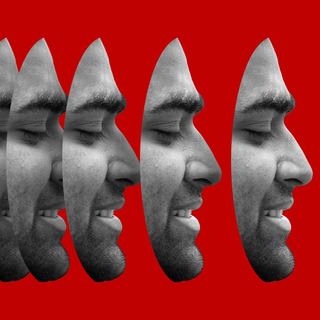June 10, 201915 min read, 2967 words
Published: June 10, 2019 | 15 min read, 2967 words
In 2018, President Donald Trump was seeking to jettison the landmark nuclear deal that his predecessor had signed with Iran in 2015, and he was looking for ways to win over a skeptical press. The White House claimed that the nuclear deal had allowed Iran to increase its military ...
CRITIC REVIEWS
Credible
June 12, 2019
June 12, 2019
Credible
June 12, 2019
June 12, 2019
Credible
June 12, 2019
June 12, 2019
Investigative
June 12, 2019
June 12, 2019
PUBLIC REVIEWS
Great Context
June 10, 2019
This is a rather long article but it needed to be in order to provide the necessary context to begin making a decision about whether Alavi is real. I do feel much of the results stem from the author's consumption of Alavi's content and he could do more to bring light to the correlations he boasts by grabbing more quotes from Alavi's articles and how they relate to MEK's policies. Otherwise, a very informative article on a heavy-hitting topic in the media industry.
June 10, 2019
Investigative
June 11, 2019
I agree with a lot of what reviewer Jacob B. had to say. It's great that author Murtaza Hussain is digging into this question, but it doesn't feel like there's much evidence to decisively conclude whether or not Heshmat Alavi is a real person. The article is packed with great context on other issues regarding Iran and for that reason is worth the read.
June 11, 2019
Investigative
June 11, 2019
This is a decent investigative article; though, the author injects a bit of bias into the overall framing of the piece, and, aside from a few quotes, does not really source much of the information. Most of the interpretation of this article comes from some checking up on Alavi with mainstream outlets, and mostly being unable to verify much of anything. Much of the context for the reasons he cites that lead to him checking up on Alavi are simply interpretations of the articles he read by Alavi without providing much in the way of examples.
Where the author really does well is framing the situation for the reader in terms of the political climate in Iran, and the political ideals of the group he assumes is responsible for the persona of Alavi, if Alavi is indeed a fictitious entity. The real issue I have here is that this is mostly speculation put into circumstantial context that makes it appear plausible, with no real substance to support the claim aside from being unable to really verify much about the entity, and some claims from sources who were supposedly associated with this group in some capacity. He does attempt to verify across multiple people; however, without knowing how he asked them to verify independently, there is no way of knowing if he loaded the answer when he asked the question.
June 11, 2019
